About
St. John's Catholic Cathedral Bauchi
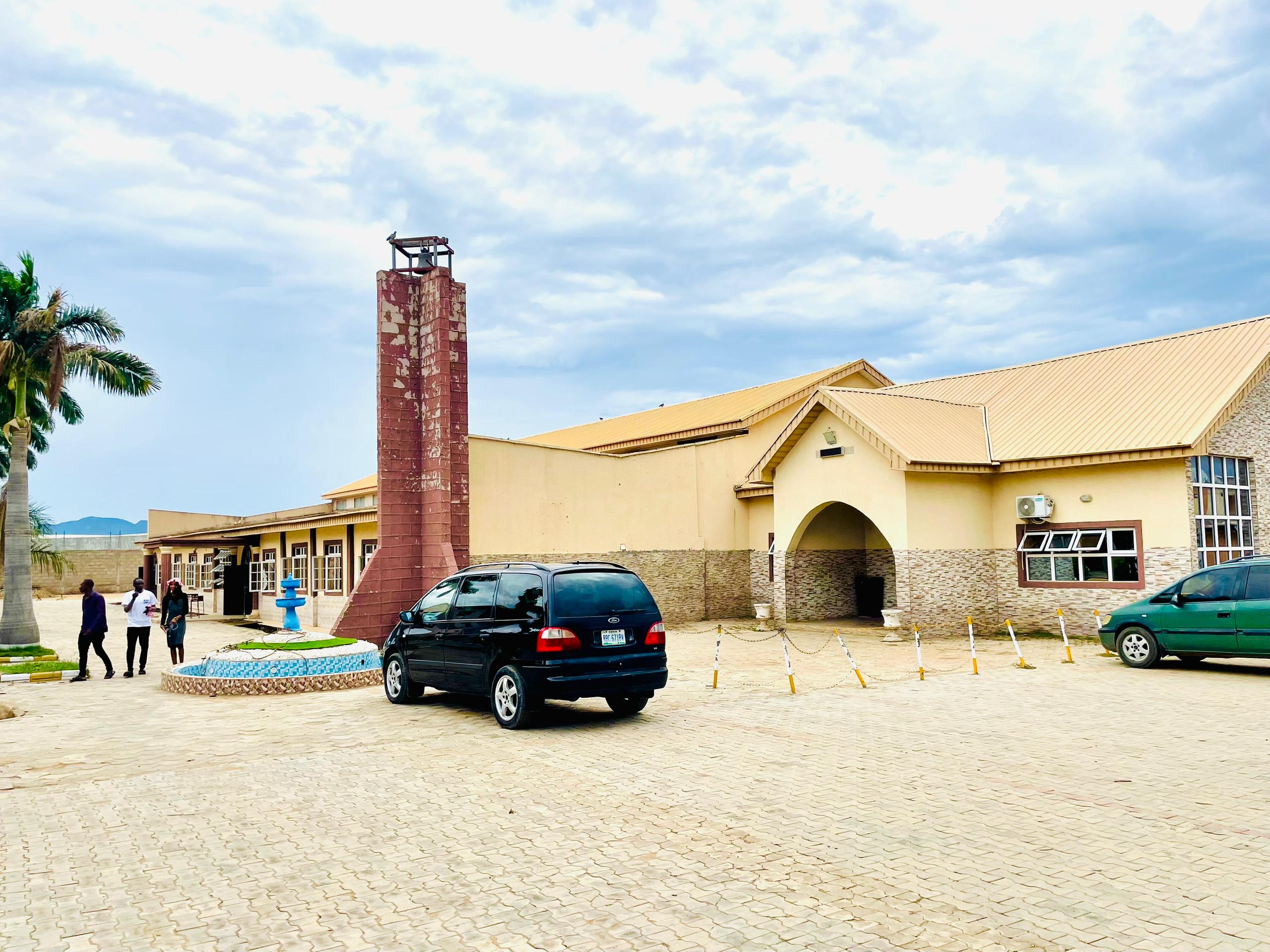
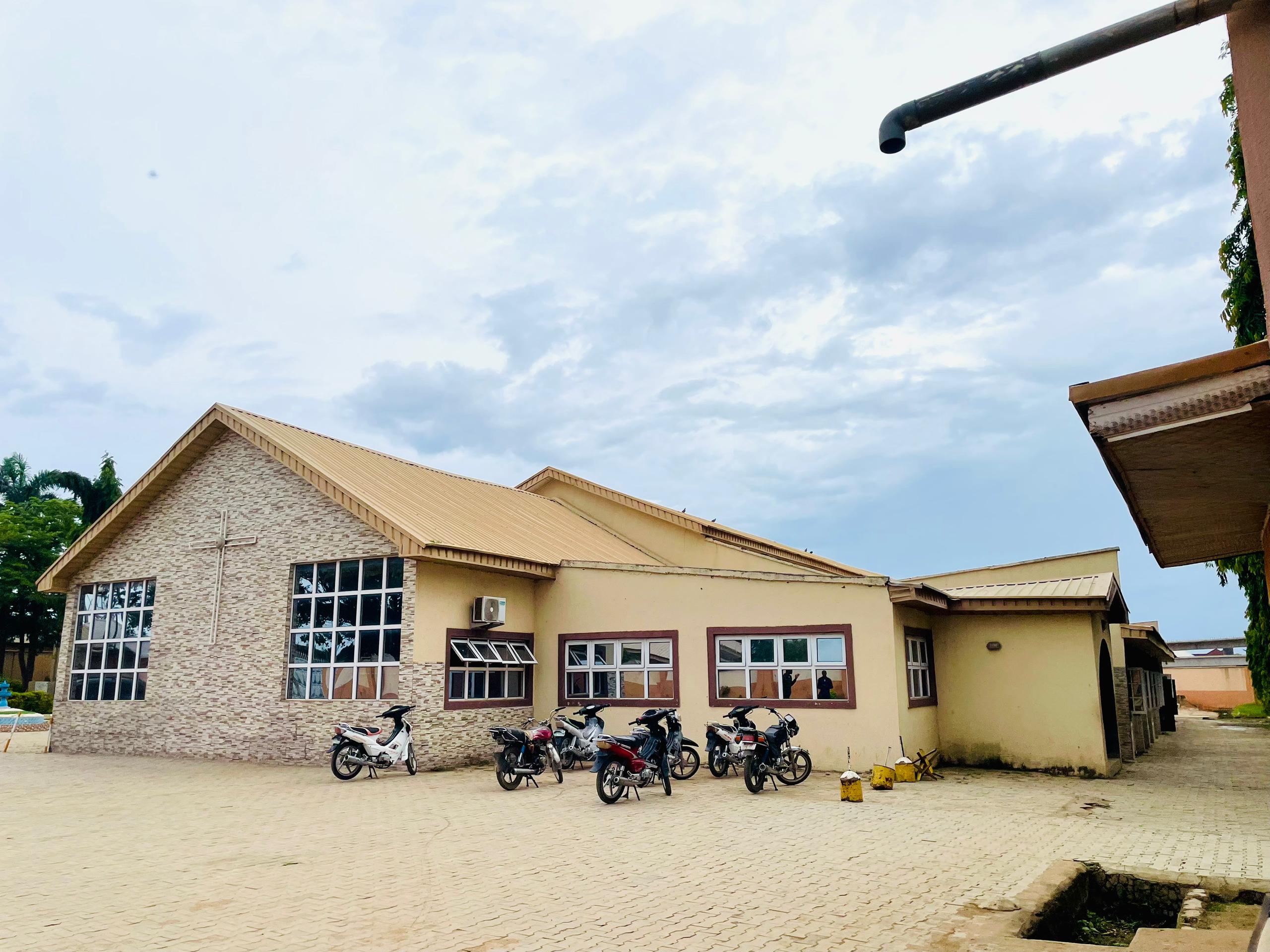
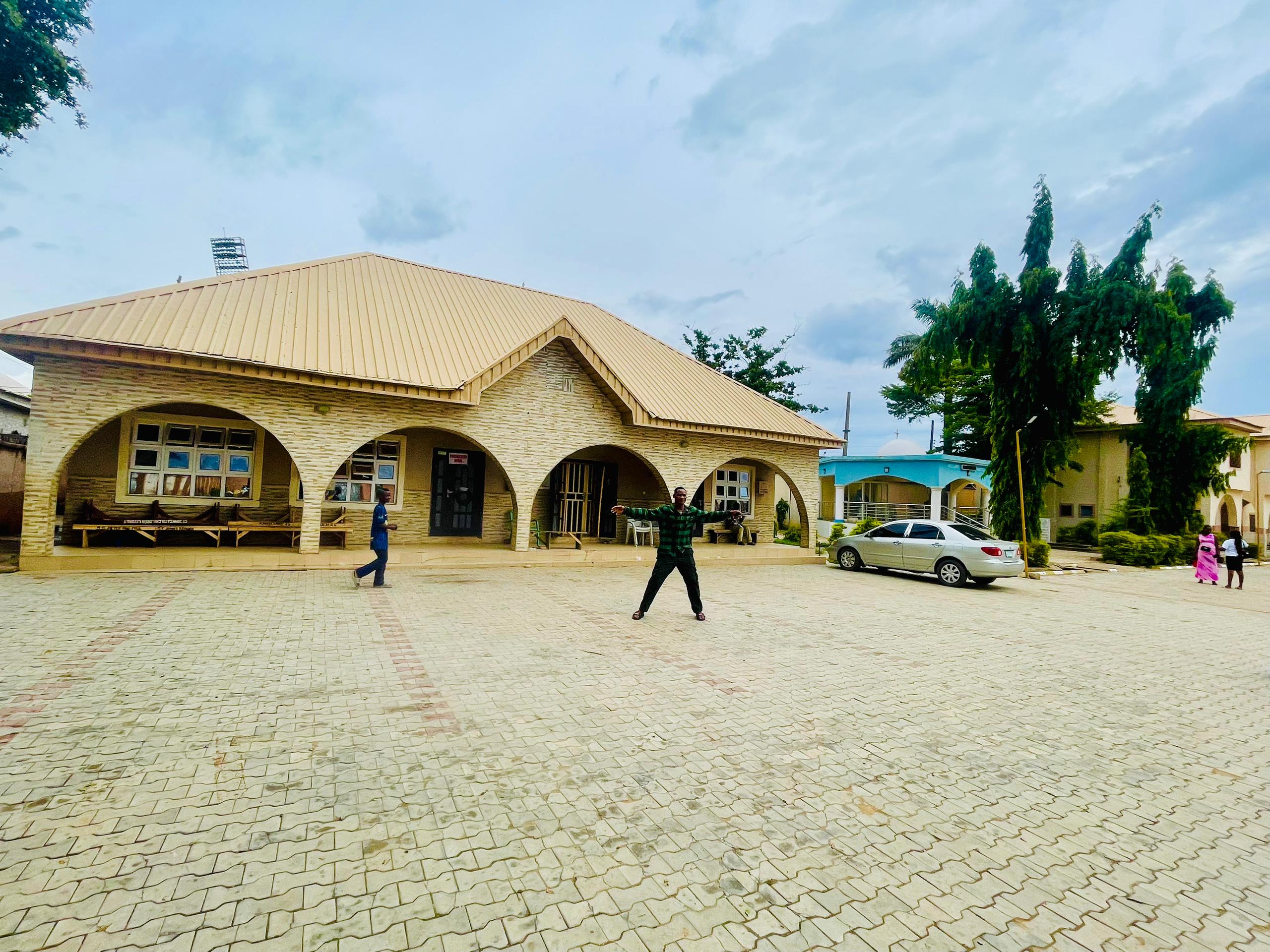
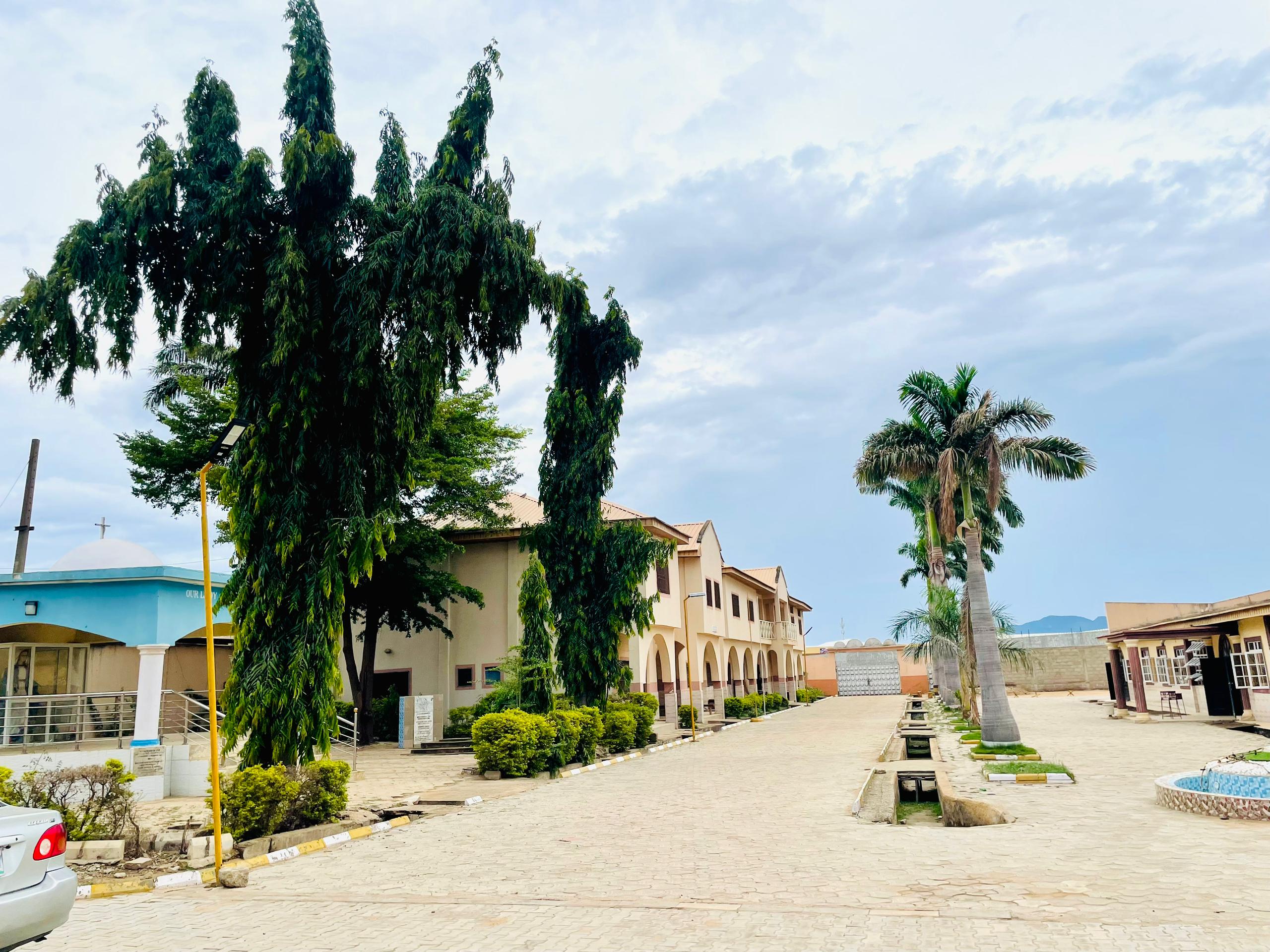
About
Welcome to St. John's Catholic Chathedral Bauchi
St. John's Catholic Cathedral is located at the episcopal see of Bauchi in Bauchi state. Established on the 5th of July 1996 as Apostolic Vicariate of Bauchi, on territory split off from its metropolitan, the Archdiocese of Jos and promoted on the 31st of December 2023 as Diocese of Bauchi.
Beyond its role as a place of worship, St. john's Catholic Cathedral is a spiritual and administrative heart of the Catholic Church in Bauchi state. It oversee various medical and educational institute, including numerious nursery, primary, and secondary schools across Bauchi, demostrating its commutement to community development and education. The cathedral’s initiatives foster holistic growth, providing essential services and nurturing the intellectual and spiritual well-being of the local community. Through these efforts, St. John’s stands as a beacon of hope, promoting spiritual and social welfare and empowering future generations with knowledge and faith.
Years Since Promotion (2003)
21
Families
150+
History
St. John's Catholic Cathedral Bauchi
The Catholic Church is the oldest and largest Christian Church in the world, with
over 1.3 billion members globally. It traces its origin to Jesus Christ and the apostles,
particularly St. Peter, the first pope. The Church is known for its universal mission, deep
spiritual traditions, and its enduring commitment to truth, love, service, and the dignity
of all human life. Guided by the Pope in Rome, the Catholic Church is organized into
dioceses and parishes around the world, where the faithful gather for worship, receive the
sacraments, and live out the Gospel.
The Diocese of Bauchi was established in 2003 by Pope John Paul II. It was carved out of the
Archdiocese of Jos to better serve the faithful in Bauchi State, located in northeastern
Nigeria. The diocese covers a vast geographical area and operates in a region with a
predominantly Muslim population. Despite being a religious minority, the Catholic community
in Bauchi is strong, committed, and growing.
At the heart of the Diocese is St. John the Evangelist Catholic Cathedral, located in
Bauchi
city, the state capital. As the Mother Church of the diocese, the Cathedral is the
liturgical and administrative center of Catholic life in the region. It is the official seat
of the bishop and the focal point for major diocesan celebrations, ordinations, and pastoral
activities.
St. John’s Cathedral serves as a place of worship, community gathering, and spiritual
formation for Catholics in and around Bauchi. Masses are celebrated regularly in English and
Hausa, ensuring accessibility to a diverse and multilingual congregation. The Cathedral also
hosts various Church societies, organizations (C.M.O, C.W.O, C.Y.O.N, H.C.A), baptism,
catechism and confirmation classes, and outreach ministries
that serve both Catholics and the wider community.
Since its elevation to cathedral status, St. John’s has continued to stand as a symbol of
faith, hope, and resilience, especially in a region that has faced religious tension and
security challenges. In 2012, the Cathedral was the site of a tragic attack, but the
unwavering faith of the people and leadership helped the Church remain strong and united in
the face of adversity.
Under the pastoral care of Most Rev. Dr. Hilary Nanman Dachelem, C.M.F., appointed bishop in
2017, the Cathedral and Diocese continue to grow in faith, vocations, and service. Bishop
Dachelem emphasizes the importance of evangelization, education, interfaith dialogue, and
unity in diversity.
Today, St. John the Evangelist Cathedral remains a beacon of spiritual life, service, and
community development, not only for the Catholic faithful but also for the wider society in
Bauchi State. Whether through worship, social outreach, or education, the Cathedral remains
committed to building a peaceful, just, and Christ-centered society.
Faith and Liturgy
The Catholic Church in Nigeria, including at St. John the Evangelist Cathedral, maintains
the traditional Catholic faith and liturgy while embracing a modern approach to
pastoral care, community life, and interfaith dialogue. The Church holds firmly to the
teachings of Sacred Scripture, Sacred Tradition, and the authority of the Magisterium —
teachings passed down from the apostles and preserved through the centuries.
The Roman Rite, also known as the Latin Rite, is the primary liturgical tradition followed
in the Cathedral. While the core structure of the Mass and sacraments remains universal, the
Church adapts to local culture by offering liturgies in both English and Hausa, making
worship accessible to all. Hymns, prayers, and preaching often reflect the rhythm and
culture of the local faithful while staying faithful to Catholic doctrine.
The Cathedral observes the liturgical calendar of the Roman Catholic Church, which includes
the seasons of Advent, Christmas, Lent, Easter, and Ordinary Time, along with solemnities,
feasts, and memorials of saints. The seven sacraments are celebrated with reverence and joy,
particularly the Eucharist, which is central to the life of the Church.
The Catholic community in Bauchi shares the values, customs, and daily life common to other
Nigerians. While being distinct in religious identity, Catholics in the region participate
fully in the social, cultural, and civic life of the community. Faith is integrated with
everyday living, and the Church plays an active role in promoting peace, education, and
moral values.
Though deeply rooted in ancient tradition, the Church remains open to renewal, always
seeking ways to deepen faith and encourage participation in a rapidly changing world. St.
John’s Cathedral continues to be a place where the eternal truths of the Church are lived
out in a local and meaningful context.
Hierarchy of the Catholic Church
The Catholic Church functions through a sacred and time-tested hierarchy that reflects its
apostolic roots, theological order, and spiritual mission. This hierarchical structure was
established by Jesus Christ when He chose the twelve Apostles and entrusted them with the
responsibility of leading His Church. Among them, St. Peter was given a special role of
leadership, which continues today in the person of the Pope. The Pope, based in Rome, is the
spiritual head of the entire Catholic Church and the visible sign of unity among Catholics
across the world. From him flows the authority that ensures the Church remains one in faith,
doctrine, and moral teaching.
Working in communion with the Pope are bishops, who are successors of the Apostles. Each
bishop governs a specific geographical area known as a diocese, where he is responsible for
teaching the faith, celebrating the sacraments, and shepherding the people of God. Under his
guidance, priests are assigned to parishes, where they lead local communities in worship,
administer the sacraments, and offer pastoral care. Deacons also play a vital role,
assisting in liturgical services and engaging in works of charity and evangelization. This
structure is not merely administrative but sacramental, grounded in the Church’s belief that
Christ Himself works through the ordained ministry to guide and sanctify His people.
At St. John the Evangelist Catholic Cathedral in Bauchi, we are an integral part of this
hierarchical communion. The Diocese of Bauchi is led by Most Rev. Hilary Nanman Dachelem,
C.M.F., who shares in the mission of the universal Church while addressing the unique needs
of the faithful in our region. Through our participation in the diocesan and global Church
structure, we are united with millions of Catholics around the world in one faith, one
baptism, and one spiritual family. The hierarchy not only preserves the integrity of
Catholic teaching but also ensures that every community, no matter how small or distant,
remains connected to the living tradition of the Church founded by Christ over 2,000 years
ago.
Saints
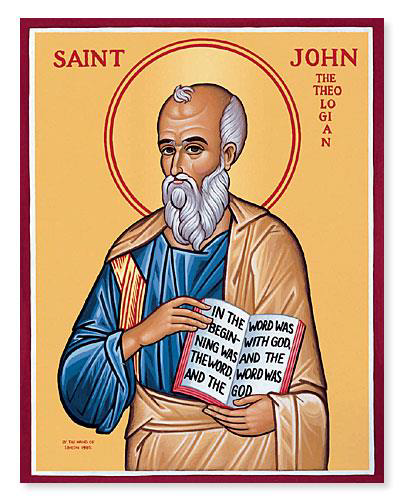
St. John
John the Apostle[12] (Ancient Greek: Ἰωάννης; Latin: Ioannes;[13] c. 6 AD – c. 100 AD), also known as Saint John the Beloved and, in Eastern Orthodox Christianity, Saint John the Theologian,[14] was one of the Twelve Apostles of Jesus according to the New Testament. Generally listed as the youngest apostle, he was the son of Zebedee and Salome. His brother James was another of the Twelve Apostles. The Church Fathers identify him as John the Evangelist, John of Patmos...
Read more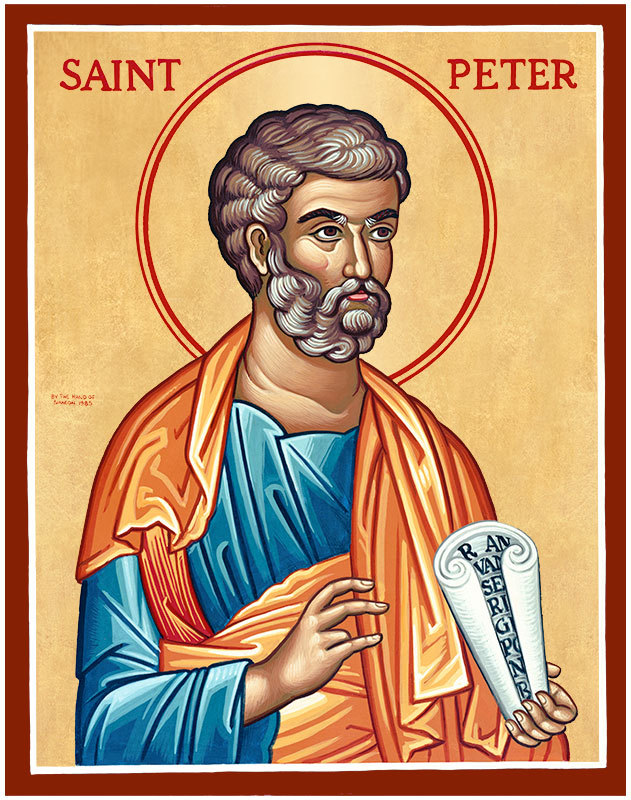
St. Peter
Saint Peter[note 1] (born Shimon Bar Yonah; 1 BC – AD 64/68),[1] also known as Peter the Apostle, Simon Peter, Simeon, Simon, or Cephas, was one of the Twelve Apostles of Jesus and one of the first leaders of the early Christian Church. He appears repeatedly and prominently in all four New Testament gospels, as well as the Acts of the Apostles. Catholic and Orthodox tradition treats Peter as the first bishop of Rome – or pope – and also as the first bishop of Antioch...
Read moreSt. Paul
Paul,[a] also named Saul of Tarsus,[b] commonly known as Paul the Apostle[8] and Saint Paul,[9] was a Christian apostle (c. 5 – c. 64/65 AD) who spread the teachings of Jesus in the first-century world.[10] For his contributions towards the New Testament, he is generally regarded as one of the most important figures of the Apostolic Age,[9][11] and he also founded several Christian communities in Asia Minor and Europe from the mid-40s to the mid-50s AD.[10] The main...
Read more